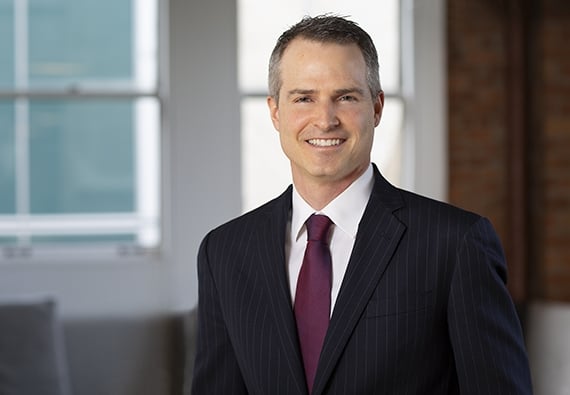What Retailers Need to Know About California’s Price-Gouging Laws
Pandemic-related price spikes in consumer goods have attracted the attention of both government enforcers and private plaintiff. In California, Attorney General Xavier Becerra has issued two admonitions against price gouging – one focused on online retail platforms, and the other emphasizing that liability attaches to all “sellers” in the supply chain, including manufacturers, wholesalers, and distributors. Private plaintiffs are also taking action. In April, a putative class action was filed in the Northern District of California on behalf of plaintiff-consumers alleging the price gouging of eggs by retailers and other sellers.
This action, as well as AG Becerra’s warnings, are grounded in Penal Code Section 396, California’s price gouging law. Enacted in 1994 following the Northridge earthquake, the law responded to localized reports of price surges in commodities like eggs, batteries, and plywood in the aftermath of the disaster. The California Legislature enacted Section 396 against this backdrop, seeking to dissuade would-be price gougers through both criminal and civil remedies. A violation of Section 396 is a misdemeanor punishable by imprisonment up to a year, or a fine up to $10,000, or both. Despite its breadth and severity, there are no judicial decisions interpreting Section 396. The renewed attention to the statute from plaintiffs and regulators, however, is a likely harbinger of more to come.
The declaration of a state of emergency by the U.S. president, California’s governor, or local governmental entity triggers Section 396. The statute prohibits price increases for certain goods and services when the increase exceeds 10 percent, based on the price charged immediately prior to the declaration.
The section most applicable to the COVID-19 pandemic regards consumer goods and other essential items. Subsection (b) targets price increases greater than 10% in connection with the offer or sale of “consumer food items or goods, goods or services used for emergency cleanup, emergency supplies, medical supplies, home heating oil, building materials, housing, transportation, freight, and storage services, or gasoline or other motor fuels.” The prohibition typically applies for 30 days following the emergency declaration. However, California Governor Gavin Newsom’s April 3 Executive Order extended the protections of subsection (b) in both directions. While his state of emergency proclamation was issued on March 4, the Executive Order proclaims February 4 as the reference date against which subsequent prices are compared. The Executive Order also extends price controls through September 4.
Private claims under Section 396 and the Unfair Competition Law are potentially large. Presumably, plaintiffs will claim as restitution any price increase in excess of 10% that the defendant cannot prove to be directly attributable to additional costs imposed by the supplier or additional labor or material costs. In the egg class action, plaintiffs used this measure for restitution. For large retailers that charge uniform prices throughout California, actions may be particularly amenable to class treatment.
A law that has received scant analysis is about to be parsed with laser focus, especially with regard to potential ambiguities, exceptions, and defenses. For most retailers, however, there is no ambiguity: they are “sellers,” and the statute imposes strict liability. But sellers are not defenseless. As noted, sellers are not liable for cost increases attributable to supplier costs or other cost increases. As an affirmative defense, defendants bear the burden of proof. Therefore, sellers must not only ensure that they are keeping their markups within their customary range, they must also be prepared to prove that higher costs caused any price increase. This statutory defense should close the door to aiding-and-abetting liability in connection with price gouging by a seller up the supply chain.
There are several other uncertainties in the scope and application of the statute. As noted above, the California AG has taken the position that all “sellers” of consumer goods, even those who don’t sell directly to consumers, are bound by the statute. But who will pursue claims against sellers up the supply chain? Retailers are unlikely to do so for business reasons. Consumers are unlikely to have evidence of the pricing practices of other sellers up the supply chain. Neither of these concerns stopped the plaintiffs in the egg case, who named multiple sellers in the supply chain while admitting that they lacked the necessary information to determine who was price gouging.
Seller liability may turn on a number of practical considerations as well. Sellers without sufficient documentation of transactions from February 4 onward, may face difficulties in proving that price increases were caused by higher costs. Sellers might consider a conservative interpretation of whether they calculate markups on an absolute or percentage basis. Automatic pricing algorithms, or indexed pricing, could be reviewed for statutory compliance. Within the supply chain, sellers could proactively communicate with their suppliers about any present or expected price increases, including explanations and/or documentation from suppliers regarding any price increases. Finally, sellers should accept the California Attorney General’s invitation to report suspected price gouging, including in the seller’s own supply chain.
Like the COVID-19 pandemic itself, much about the application of Penal Code Section 396 remains uncertain. However, one thing is not: in light of the potentially enormous criminal and civil exposure created by relatively modest price fluctuations in a turbulent economic environment, the statute is ripe for testing.


